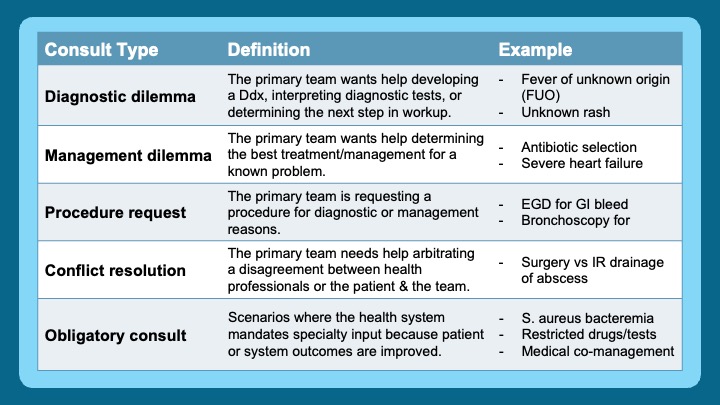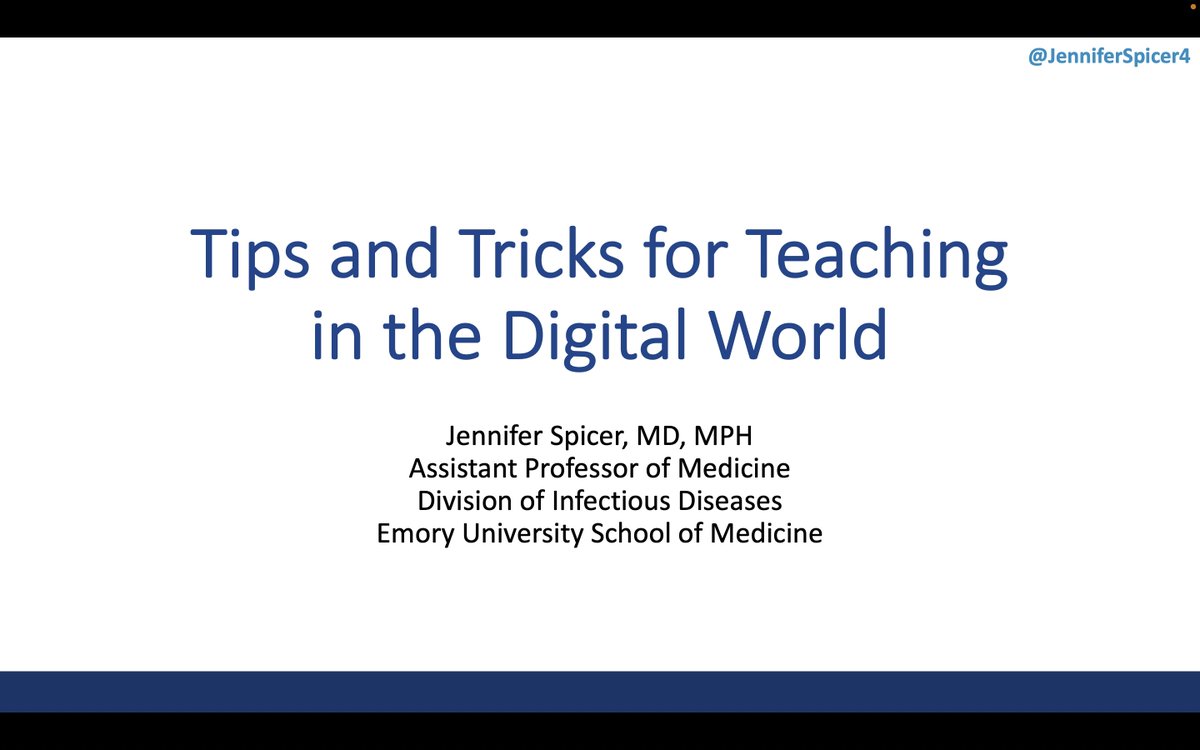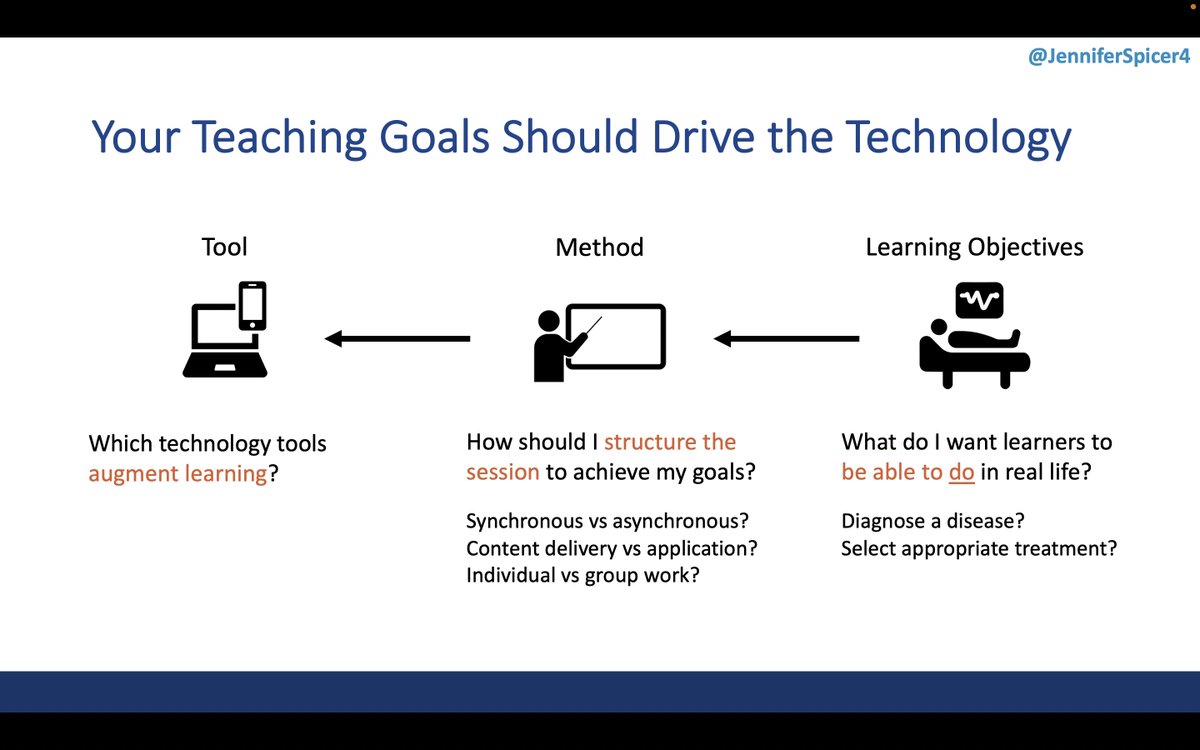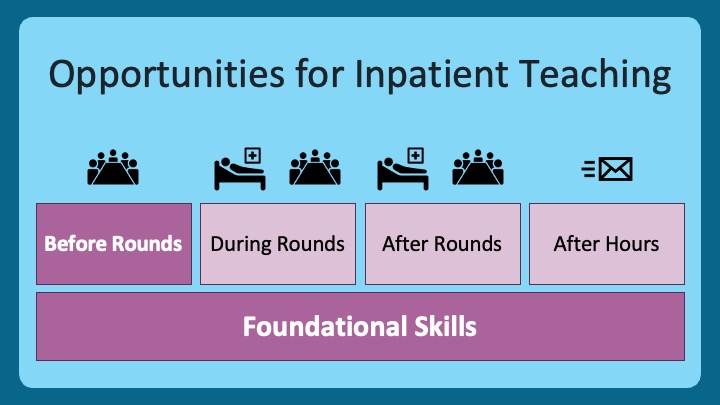
1/ *Consult team room*
A brand-new learner joins your consult team.
You share details about a new consult & schedule ⏱️ to meet in the afternoon to staff.
⌛️
5 minutes into their presentation you realize, "Oh no. I'm going to have to redo this consult, aren't I?"
A brand-new learner joins your consult team.
You share details about a new consult & schedule ⏱️ to meet in the afternoon to staff.
⌛️
5 minutes into their presentation you realize, "Oh no. I'm going to have to redo this consult, aren't I?"

2/ Learners on consult teams must tackle unfamiliar and complex questions, often with less time to evaluate a patient and develop a plan than on primary services.
3/ This @AcadMedJournal paper by @s_brond describes factors that contribute to cognitive load on consults.
pubmed.ncbi.nlm.nih.gov/34348389/
Although this article focuses on the experiences of fellows, other learners likely struggle with some of these areas as well.
pubmed.ncbi.nlm.nih.gov/34348389/
Although this article focuses on the experiences of fellows, other learners likely struggle with some of these areas as well.

4/ So how can we help learners approach effective data gathering?
We can tell them which data are most relevant for the consult "ask"
While this is somewhat case- & specialty-specific, we CAN categorize the kinds of "asks" that specialists get to develop a structured approach.
We can tell them which data are most relevant for the consult "ask"
While this is somewhat case- & specialty-specific, we CAN categorize the kinds of "asks" that specialists get to develop a structured approach.
5/ As teachers on specialty services, it's our responsibility to help learners by explicitly telling them the consult "ask"...
...and then TEACH them what information they need to gather.
...and then TEACH them what information they need to gather.
6/ @VarunPhadke2 discussed last week how identifying the "consult type" is a key part of “receiving the consult”
https://twitter.com/VarunPhadke2/status/1600306987786727424
7/ Prior articles have also described frameworks for grouping consultation types.
pubmed.ncbi.nlm.nih.gov/30768469/
For the purposes of this thread, I've reorganized the framework from this article & @VarunPhadke2's thread into a new one.
pubmed.ncbi.nlm.nih.gov/30768469/
For the purposes of this thread, I've reorganized the framework from this article & @VarunPhadke2's thread into a new one.
8/ Each of these 5 "consult asks/types" requires different information.
Therefore, if we identify the consult type, we can provide targeted guidance to our learners about what data they should gather, thus saving them (and us) time.
Therefore, if we identify the consult type, we can provide targeted guidance to our learners about what data they should gather, thus saving them (and us) time.

9/ Whereas diagnostic dilemmas require substantial data gathering from the patient, the chart, & potentially discussions with other health professionals (e.g., radiology, pathology, etc.)...
...management dilemmas require more time reading guidelines, primary literature, etc.
...management dilemmas require more time reading guidelines, primary literature, etc.

10/ Here's an example of what this looks like for a common diagnostic dilemma we see in ID:
🌡️Fever of unknown origin (FUO)
#IDTwitter
Notice how the attending/fellow GUIDES the learner about WHAT info to obtain, WHERE to get it, and what NOT to spend time on.
🌡️Fever of unknown origin (FUO)
#IDTwitter
Notice how the attending/fellow GUIDES the learner about WHAT info to obtain, WHERE to get it, and what NOT to spend time on.

11/ Here is an example of how this guidance may differ for a consult where the primary team is requesting a procedure - like a colonoscopy to assess for chronic diarrhea in an immunocompromised patient.
Remember, this isn't obvious to your learners, it's our job to GUIDE!
Remember, this isn't obvious to your learners, it's our job to GUIDE!

12/ Then use the time staffing consults to role model effective data gathering:
📌 What do you LOOK AT in the chart?
📌 How do you PHRASE key questions?
📌 What EXAM maneuvers are important?
📌 What QUESTIONS do you ask radiology? other consultants? the micro lab?
📌 What do you LOOK AT in the chart?
📌 How do you PHRASE key questions?
📌 What EXAM maneuvers are important?
📌 What QUESTIONS do you ask radiology? other consultants? the micro lab?
13/ Remember, data gathering is a skill.
It's not intuitive to learners what information is important, so help them find the signal in the noise.
This is where experience & expertise matter!
It's not intuitive to learners what information is important, so help them find the signal in the noise.
This is where experience & expertise matter!
14/ So next time you're assigning a consult to a learner, streamline their workflow and help their data gathering by:
✅ Identifying the "consult type"
✅ Orienting them to what info is important
✅ Providing them with resources to help
It will save ⏱️ - for you and them!
✅ Identifying the "consult type"
✅ Orienting them to what info is important
✅ Providing them with resources to help
It will save ⏱️ - for you and them!

15/ Next week @VarunPhadke2 will continue this series on "Teaching Consultant Skills" with "Verbal Communication of Recs."
Remember to check out #SubspecialtyTeaching @MedEdTwagTeam to find all our threads in one place!
Remember to check out #SubspecialtyTeaching @MedEdTwagTeam to find all our threads in one place!

@threadreaderapp unroll
• • •
Missing some Tweet in this thread? You can try to
force a refresh


















